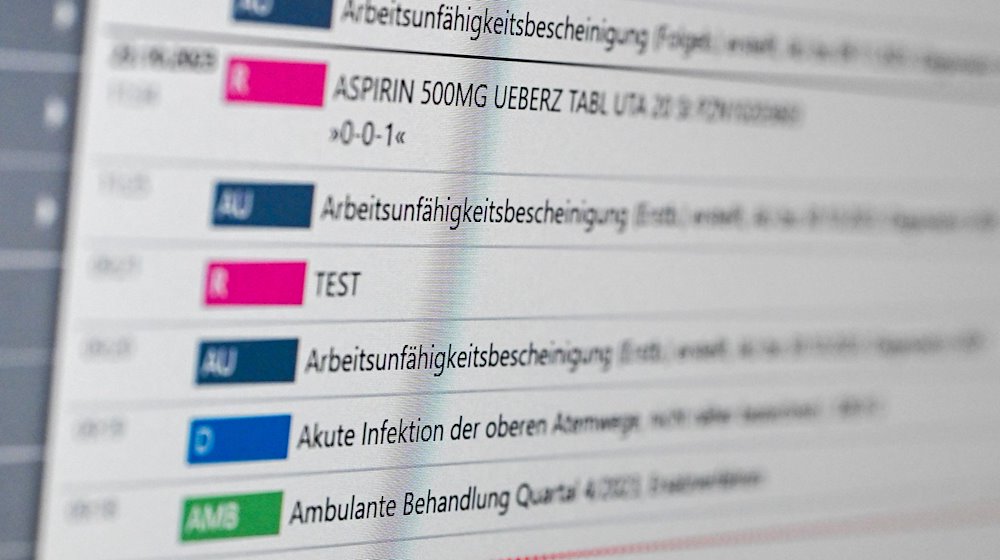Patients with statutory health insurance in Saxony are still rather cautious about the electronic patient file (ePA). In mid-January 2025, millions of patients will soon have important health data such as findings and laboratory results available as standard in a personal digital collection. At the beginning of February, the Bundesrat passed the corresponding law passed by the Bundestag.
According to the plans of Health Minister Karl Lauterbach (SPD), all those with statutory health insurance are to receive e-patient files at the beginning of 2025 - unless they actively refuse to do so. Research using health data is also to be promoted. The law also regulates the already increasing mass use of electronic prescriptions.
"Currently and in the future, the ePA remains voluntary for the insured, there is no obligation to use it," says Monika Welfens, regional managing director of the health insurance company Barmer Sachsen. If insured persons do not want an ePA, they can object to the system and deletion is "possible at any time".
For Barmer, it is important that this also relieves the burden on doctors, for example by simplifying or speeding up work processes. "The main way to achieve this is through good usability, adapted to the digital needs of healthcare," says Welfens.
Only around 4,500 of the approximately 311,000 people insured by Barmer in Bavaria have created their ePA. The number changes daily and there are relatively few objections. At AOK Plus for Saxony and Thuringia, a total of around 12,400 policyholders have created a "digital identity" to date. Around 9700 - just under 7000 of the approximately 2.25 million insured persons in Saxony - have already used their ePA. Only a few insured persons "did not want us to create an electronic patient file for them", says a spokeswoman. However, discussions have shown that there is a lack of information. After being advised about the background and benefits, many changed their minds about the EPR.
The aim of the legislation is to bring together previously scattered treatment data, enable better treatments and avoid multiple examinations and unwanted drug interactions. In addition, insured persons themselves should be able to easily see what data is available about them, such as allergies, implants or medication.
The DAK is also convinced of the "clear" benefits of the ePA "if it is used and filled in by all healthcare partners". It expects significant improvements in diagnostics and treatment as well as greater transparency for patients.
Around 40,000 people insured with the health insurance company have activated their ePA nationwide, "with an upward trend", says a spokesperson. That is 0.73 percent of all DAK policyholders. He assumes a similar proportion among the approximately 160,000 people insured in Saxony. Objections nationwide are in the lower four-digit range - mostly against the ePA in general without specific points of criticism.
The IKK classic has over 16,400 activated electronic patient files nationwide so far and only a few objections. It wants to "dispel any concerns and reservations" with the help of information offers, says a spokesperson. Those who have an ePA are already actively using it, for example by uploading documents. Currently, the response is still subdued, even among the approximately 400,000 insured persons in Saxony.
According to Techniker Krankenkasse (TK), around 10,300 of its insured persons in Saxony have an ePA. Objections have also already been received, said Alexander Krauß, head of the state office. "In any case, it makes sense to find out about the ePA and understand what purposes it serves," said Welfens from Barmer. This is the only way to make a decision for or against it.
Copyright 2024, dpa (www.dpa.de). All rights reserved










